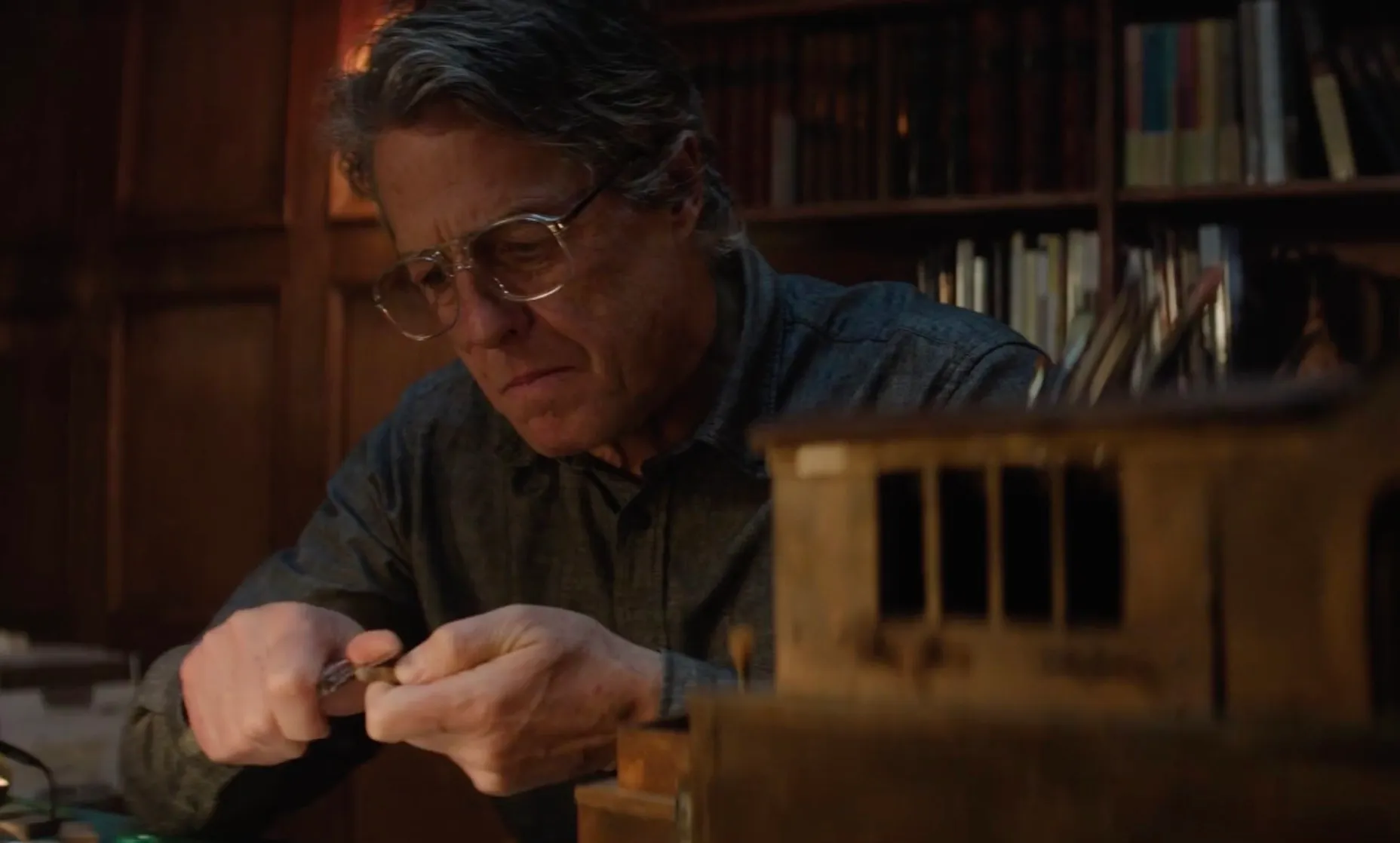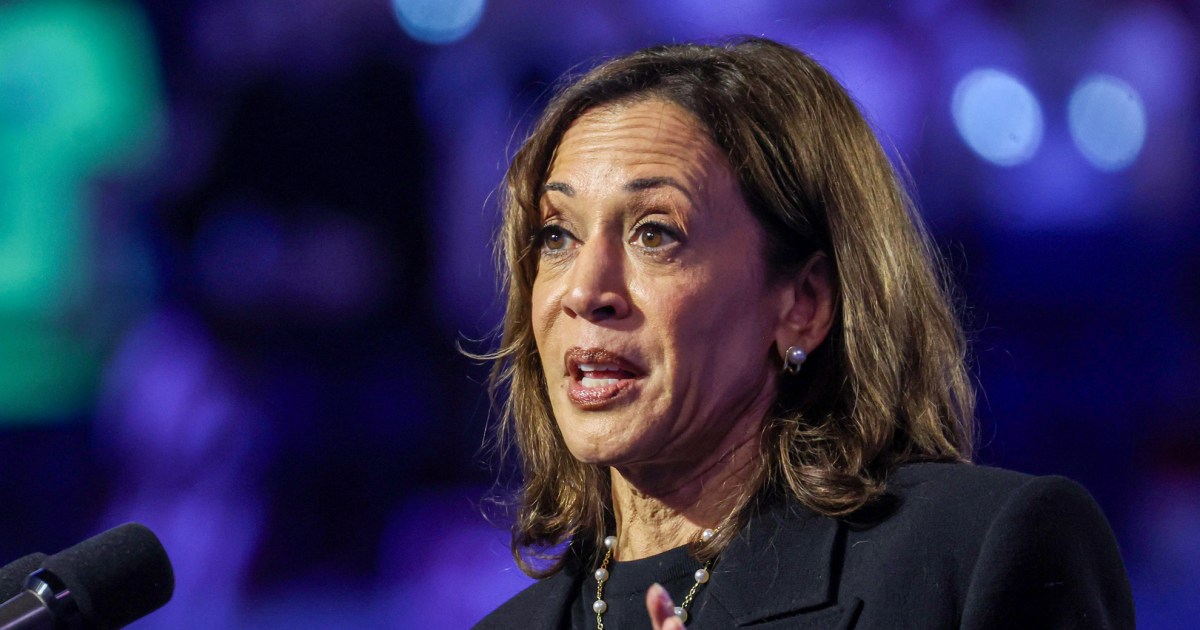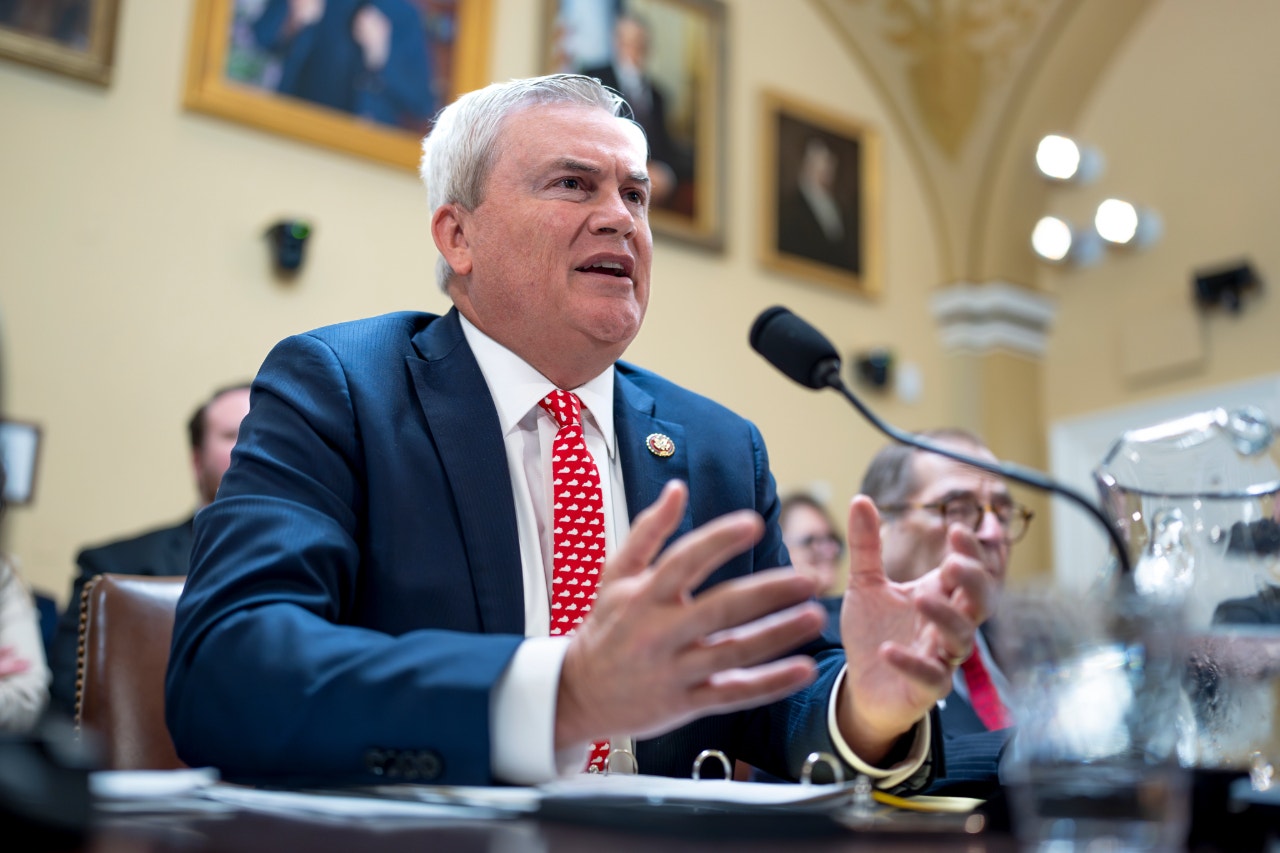Politics
A secretary of State walks into a bar: Mixed reviews after Blinken rocks out in Kyiv

Was it guitar-hero time? Or a tone-deaf attempt at wartime solidarity?
Secretary of State Antony J. Blinken garnered some mixed reviews in the Ukrainian capital on Wednesday after busting out his ’80s-rock chops at a bedraggled but beloved Kyiv bar.
Some Ukrainians cheered Tuesday night’s packed-house performance as a show of warmth and support at a gloomy and frightening moment in Ukraine’s war against invading Russian forces.
For others, though, the top U.S. diplomat’s basement-bar gig with the local band 19.99 — who delivered a heartfelt but not-always-tuneful cover of Neil Young’s “Rockin’ in the Free World” — struck a discordant note.
Blinken’s drop-in appearance at the cellar-level Barman Diktat nightspot — impromptu-seeming but carefully planned, with watchful security in attendance — came at what military analysts are describing as a particularly perilous point in the more than two-year-old war.
Russian troops have staged a major cross-border assault in the country’s northeast corner, and the country’s second-largest city, Kharkiv, is under greater threat than since the start of the war. Thousands of Ukrainians have fled the latest fighting, and even far from the front lines, dread and anxiety are running high.
Much of the social-media commentary reacting to Blinken’s rhythm-guitar riff was lighthearted in tone, centering on jokes and memes. But it also generated some expressions of dismay.
The appearance “can be described in one word: inappropriateness,” Svitlana Matvienko, the executive director of an NGO called the Agency for Legislative Initiatives, wrote on Facebook.
Matvienko said she was thankful for U.S. and allied military aid, but that she was “offended by this performance, as a Ukrainian citizen whose loved ones are giving up everything so that we can resist.”
Others, though, saw a nod to a culture of wartime defiance that finds an outlet in the capital’s club scene, a Europe-wide magnet before the Russian invasion — which now serves as a pressure valve in dark times.
“I thought it was kind of like, he’s a big politician and he plays rock music in a bar — cool, why not?” said Mariia Lobyntseva, 27, an artist in Kyiv. “Young people can’t stop going out and letting off steam at bars. It’s necessary for us.”
The bar in question, located in an alley off Kyiv’s main drag, has been a popular venue for many years, although the name has changed a few times.
On most nights, there’s a live band on the small stage in the far side of the cavernous room. Musical offerings can vary widely: a string quartet from the National Philharmonic of Ukraine one night, a jazz ensemble on another.
Kyiv still maintains a wartime curfew of midnight, but it’s not unusual for the bar to be packed until last call — just in time for the bar crew to clean up and hurry home, with nights often punctured by air alerts.
Not a few commentators pointed out that the lyrics of singer-songwriter Young’s 1989 hit “Rockin’ in the Free World,” actually constitute a biting commentary on the poverty and despair that plagues wealthy Western societies.
Blinken, though, made clear he was leaning into the song’s famous chorus as a means of conveying encouragement to a war-pummeled populace.
“I know this is a really, really difficult time,” the secretary of State told the crowd at the start of the musical interlude, citing suffering in the country’s northeast and elsewhere. But he said of Ukraine’s fight: “The free world is with you.”
Some Ukrainians who were bemused by the episode nonetheless perceived it as a display of goodwill — even if a slightly clumsy one.
“Many of my colleagues were sharing different emotions about the event, whether the timing or the lyrics were right,” said Margo Gontar, a 35-year-old blogger.
But if band members wanted Blinken up there on stage with them, she said, “then definitely I consider this to be a sign of support.”
Reacting to negative commentary, some Ukrainians said indignation over Blinken’s performance was misplaced.
“Yeah, maybe his attempt to demonstrate informality and soft power by playing a song at our favorite bar in central Kyiv took place at a bad time,” journalist and author Illia Ponomarenko wrote on X. But Blinken, he said, was “the last person we need to focus our bitterness and anger on.”
Without U.S. aid, Ponomarenko wrote, “half of us would have been rotting in a pit with a bullet in our heads and with our hands behind our backs; the other half would have been seeking refuge elsewhere in the world and reading sad news about a ‘Ukrainian National Government in Exile.’”
Special correspondent Ayres reported from Kyiv and Times staff writer King from Washington.

Politics
Pennsylvania Voters Worry About the Toxicity of Politics

In a tight presidential race, Pennsylvania, with its 19 electoral votes, will very likely decide the winner. And the state, which Donald J. Trump won in 2016 and President Biden won in 2020 by narrow margins, is up for grabs.
That’s clear in Berks County, which lies about 60 miles northwest of Philadelphia where flourishing Democratic suburbs melt into conservative, rural Pennsylvania.
The mountains and low hills that make up most of the county are sprinkled with small towns and farms, while the county seat, Reading, is Pennsylvania’s fourth-largest city, with a substantial Latino majority. In 2020, Mr. Trump won the county by around 8 percentage points, the narrowest margin of the 54 counties that he won across the state.
Berks is “a big bag of marbles,” said Matthew Orifice, a longtime resident of Boyertown, Pa., “half of which are blue, half of which are red.”
Scroll to play video
Mr. Orifice, 56, says that people in the area with very different politics have come together on practical matters, like lobbying for school programs threatened by budget cuts.
He and more than two dozen Berks County residents interviewed this month described the county as a place that was mostly neighborly despite deep political disagreements. But nearly all of them worried that the growing toxicity of national politics had endangered that sense of community.
Frustrations Over Cultural Division
People’s views are much more polarized on issues like abortion, L.G.B.T.Q. rights and immigration. And each side blames the other side’s party leaders for the rise in political tensions.
In a mostly white county that is also home to a large and growing Latino population, opinions on race and immigration can be complex. Trump supporters outside the city often described Reading in grim terms, but some said they liked the city’s current mayor, a Democrat and the first Latino to hold the office. Inside the city, some Latino residents felt strongly that too many people were coming into the United States and relying on government services.
Scroll to play video
The people who were really sowing discord, many Trump supporters insisted, were the Democrats with their emphasis on race and gender, particularly in schools.
“The people in power are splitting people into all these special groups,” said Randy Bleyer, 68, a retired machinist at a local polymer plant. “They’re pushing division.”
Scroll to play video
Shavona Johnson, 37, who works for the state’s Department of Corrections, said she believed that the Democrats were trying to foster racial conflict to get votes and that the contentious debates about accepting refugees were just another part of that strategy.
She said she fully supported Mr. Trump’s proposal to round up and deport everyone who was in the country illegally. “There’s some countries that won’t even allow Americans to get citizenship,” she said. “Why do we have to be the one that’s open?”
Supporters of Vice President Kamala Harris said there were other issues more important to them, including abortion rights and reducing healthcare costs.
Scroll to play video
Many said they were also deeply uneasy about the condition of the social fabric in Berks County. Several said that Mr. Trump had stirred up a small but belligerent subset of supporters who seemed to have become more hostile as the election approached.
“It’s a daily bombardment of hatred,” said Liz Groh, 62, who works at a restaurant in a suburb of Reading.
Who Can Bridge the Divide?
When Gary Simmons and Luther Crosby sat and joked at Mr. Simmons’s house in the countryside, it was easy to see the neighborly Berks County that many spoke about.
Mr. Crosby, 73, is a white Vietnam War veteran who helps Mr. Simmons tinker with old cars, and he is a staunch Trump supporter, proudly advertising his sardonic right-wing politics in a mosaic of bumper stickers. Mr. Simmons, 65, a Black man who served as a Marine and worked in a steel mill, is not as outspoken about his support for Ms. Harris, but he gets a kick out of his friend’s brashness.
Both men are worried about the vitriol in the country. But even as they echo one another in lamenting the political division these days, they have fundamental disagreements on which candidate would best bridge those divides. And they’re not alone.
Scroll to play video
Mr. Crosby insisted that giving away too much money in foreign aid, while not being strict enough with border enforcement, had left the country a mess. But he thought it had become harder to fix because of unbending partisanship. “When did that ever start?” he asked. “I thought we were one country.”
Gary Simmons and Luther Crosby
Mr. Simmons agreed with some of this, though he was not as nostalgic as his friend. When he moved from Reading to rural Berks County around 50 years ago, he said in an interview before Mr. Crosby’s visit, he had a “hell of a time” as one of the few Black students in his school. He believed things had changed for the better since then.
But then came 2016 and Mr. Trump’s arrival onto the political scene. Mr. Simmons said some of those old, hateful sentiments returned.
“I don’t know how much longer the Lord is going to have me here to see all of this carrying on, but he cannot ever step foot in that office again,” Mr. Simmons said of Mr. Trump. “I think the man is just a ticking bomb.”
Politics
Roy quizzes DOJ on 'coordination' with left-wing groups over suits challenging states' voter roll purges
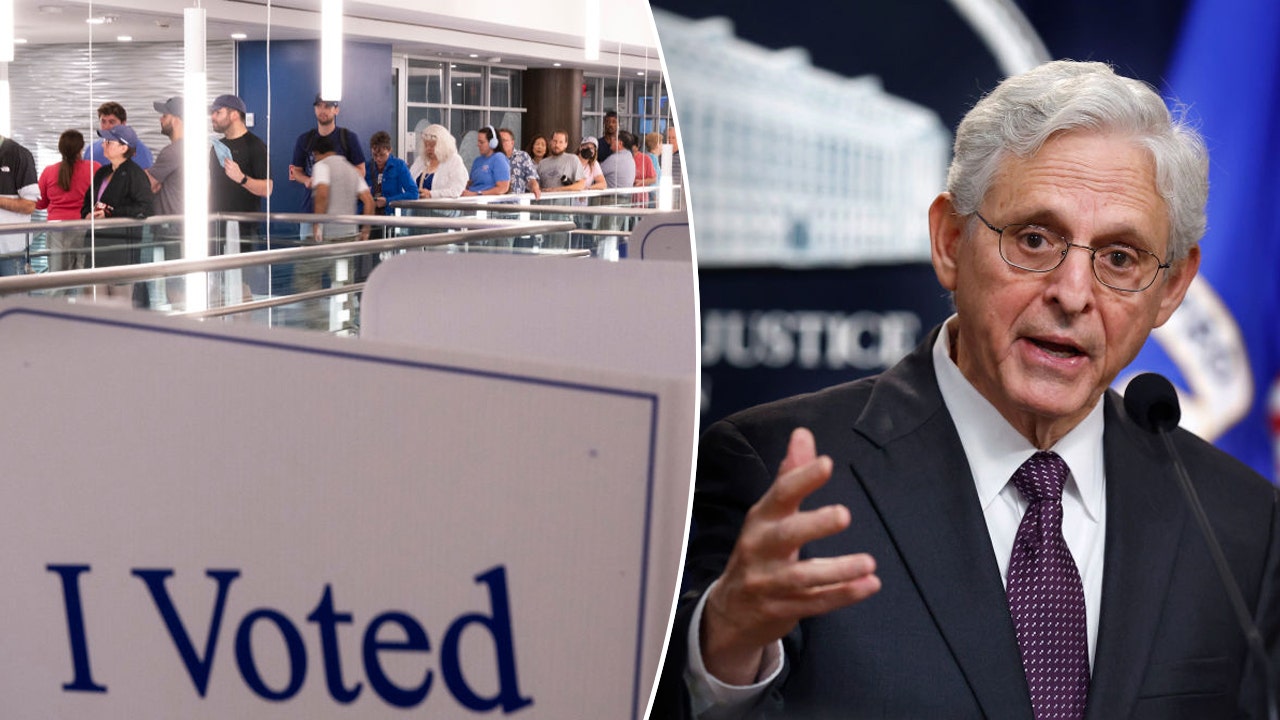
FIRST ON FOX: A top House Republican is questioning the Department of Justice about what he says is “apparent coordination” with left-wing civil rights groups over its lawsuits against two Republican-led states over efforts to remove non-citizens from its voter rolls.
“The Subcommittee on the Constitution and Limited Government is conducting oversight of the apparent coordination between the Civil Rights Division and left-wing advocacy groups to impede the ability of states to ensure the accuracy of their voter rolls,” Rep. Chip Roy, R-Texas, who is chairman of the subcommittee, says in a letter obtained by Fox Digital.
The Department of Justice sued Alabama and Virginia in recent months over their moves to remove non-citizens from the voter rolls. The DOJ has claimed that the states have violated clauses that say states must complete their maintenance program no later than 90 days before an election under a clause known as the Quiet Period Provision.
VIRGINIA AG CHEERS SUPREME COURT RULING AS ‘HUGE WIN’ FOR ELECTION INTEGRITY
Rep. Chip Roy, R-Texas, wrote to the Department of Justice requesting answers on the timing of its lawsuits.
“This systematic voter removal program, which the State is conducting within 90 days of the upcoming federal election, violates the Quiet Period Provision,” the DOJ said as it filed suit against Virginia.
Virginia has insisted that the state’s process is “individualized” and conducted in accordance with state and federal law. A lower court ordered 1,600 individuals to be restored to the voter rolls, but that has since been blocked by the Supreme Court.
The DOJ sued Alabama on similar grounds, alleging that changes to the voter registration lists took place 84 days before Election Day.
“The right to vote is one of the most sacred rights in our democracy,” Assistant Attorney General Kristen Clarke of the Justice Department’s Civil Rights Division said in a statement. “As Election Day approaches, it is critical that Alabama redress voter confusion resulting from its list maintenance mailings sent in violation of federal law.”
But Roy says the lawsuits from the DOJ came after lawsuits by left-wing civil rights groups. In the letter, Roy says that the Sept. 27 Alabama lawsuit came weeks after a Sept. 13 lawsuit from a coalition of left-wing civil rights groups. The cases were consolidated on Sept. 28.
In Virginia, a civil rights lawsuit was filed on Oct. 7, and the DOJ filed its lawsuit on Oct. 11.
SUPREME COURT TEMPORARILY HALTS LOWER COURT RULING ORDERING 1,600 VOTERS BACK ON VIRGINIA VOTER ROLLS
“The cases involve the same or similar plaintiffs and lawyers and follow a similar pattern with respect to the timing of each complaint. These circumstances raise questions as to whether the DOJ’s Civil Rights Division is working with these groups to file cases to keep noncitizens on voter rolls just before the 2024 election and prevent states from ensuring that only eligible citizens vote in federal elections,” Roy says.
He also says the DOJ “did not object to consolidating its cases with those filed by left-wing organizations and attorneys with a public history of opposing bipartisan efforts to prevent noncitizens from voting.”
Roy says many of the groups have objected to the Safeguard American Voter Eligibility (SAVE) Act, which would require proof of citizenship to vote in federal elections.
26 REPUBLICAN ATTORNEYS GENERAL JOIN VIRGINIA IN PETITIONING SUPREME COURT TO RULE ON VOTER ROLL
“The American people deserve to know whether left-wing activist groups are dictating the DOJ’s legal strategy with respect to noncitizens voting in the upcoming election,” he writes.
Roy is asking for all documents and communications relating to the lawsuits and any of the civil rights groups involved in the suits, as well as documents to show whether the DOJ plans to file any additional lawsuits against the states.
Virginia was handed a legal victory this week when the Supreme Court halted the lower court’s decision to reinstate 1,600 potential noncitizens to the rolls. A divided court granted the state’s stay application pending appeal in the Fourth Circuit Court of Appeals on Wednesday. Justices Sonia Sotomayor, Elena Kagan and Ketanji Brown Jackson dissented.
The DOJ said in a statement Wednesday after the Supreme Court’s ruling, “The Department brought this suit to ensure that every eligible American citizen can vote in our elections. We disagree with the Supreme Court’s order.”
Fox News’ Haley Chi-Sing contributed to this report.
Politics
Lakers star LeBron James endorses Kamala Harris for president
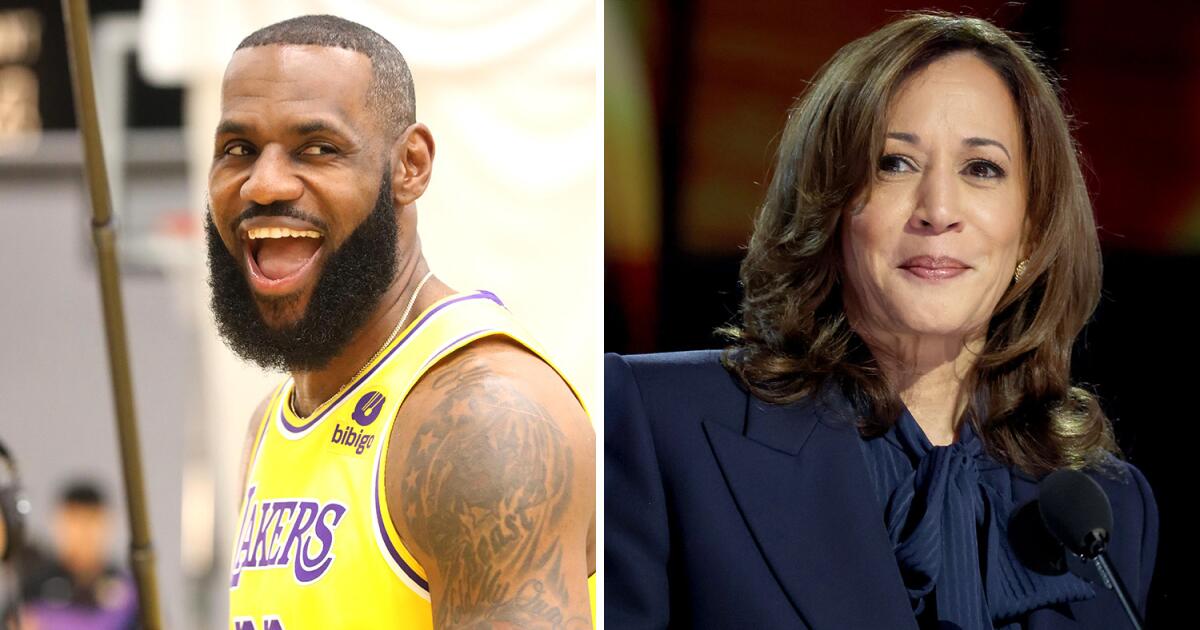
LeBron James endorsed Kamala Harris in the presidential election via a post on social media Thursday.
“What are we even talking about here?? When I think about my kids and my family and how they will grow up, the choice is clear to me. VOTE KAMALA HARRIS!!!” he posted on X along with a video beginning with a racist joke from comedian Tony Hinchcliffe and including soundbites from former President Trump.
The video ends with the phrase “Hate Takes Us Back.”
Between his Instagram and X accounts, James shared the video and endorsement to more than 200 million combined followers.
James is no stranger to playing a role in presidential politics, having formed the group More Than a Vote in 2020 in response to the racial turmoil and reckoning following the killings of George Floyd and Breonna Taylor. More Than A Vote worked with a nonpartisan voting rights group to fight voter suppression.
In 2024, WNBA star Nneka Ogwumike assumed leadership of the nonprofit, which shifted its focus to women’s freedoms.
James endorsed Joe Biden during the 2020 election and Hillary Clinton in 2016.
-

 Movie Reviews1 week ago
Movie Reviews1 week agoAlien Country (2024) – Movie Review
-
/cdn.vox-cdn.com/uploads/chorus_asset/file/25431700/STK201_SAM_ALTMAN_CVIRGINIA_A.jpg)
/cdn.vox-cdn.com/uploads/chorus_asset/file/25431700/STK201_SAM_ALTMAN_CVIRGINIA_A.jpg) Technology7 days ago
Technology7 days agoOpenAI plans to release its next big AI model by December
-

 Health6 days ago
Health6 days agoNew cervical cancer treatment approach could reduce risk of death by 40%, trial results show
-

 Culture7 days ago
Culture7 days agoTop 45 MLB free agents for 2024-25 with contract predictions, team fits: Will Soto get $600M+?
-
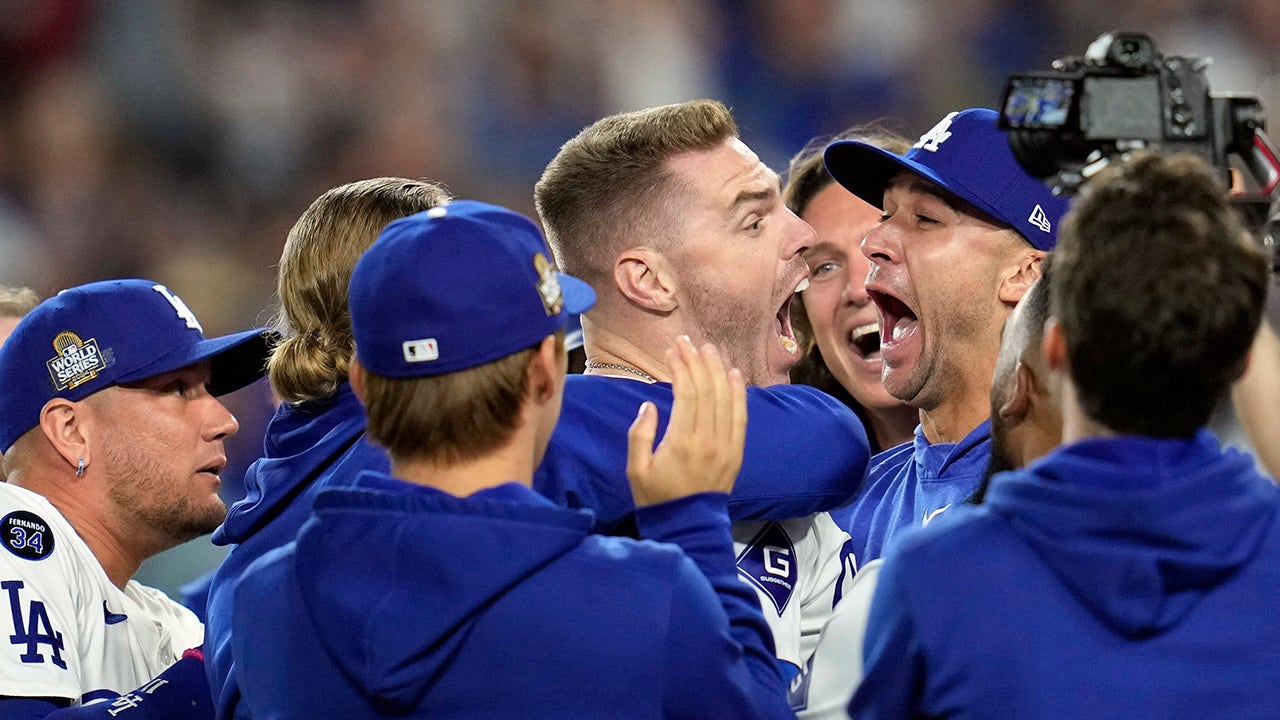
 Sports5 days ago
Sports5 days agoFreddie Freeman's walk-off grand slam gives Dodgers Game 1 World Series win vs. Yankees
-
News5 days ago
Sikh separatist, targeted once for assassination, says India still trying to kill him
-

 Culture5 days ago
Culture5 days agoFreddie Freeman wallops his way into World Series history with walk-off slam that’ll float forever
-

 Technology4 days ago
Technology4 days agoWhen a Facebook friend request turns into a hacker’s trap
